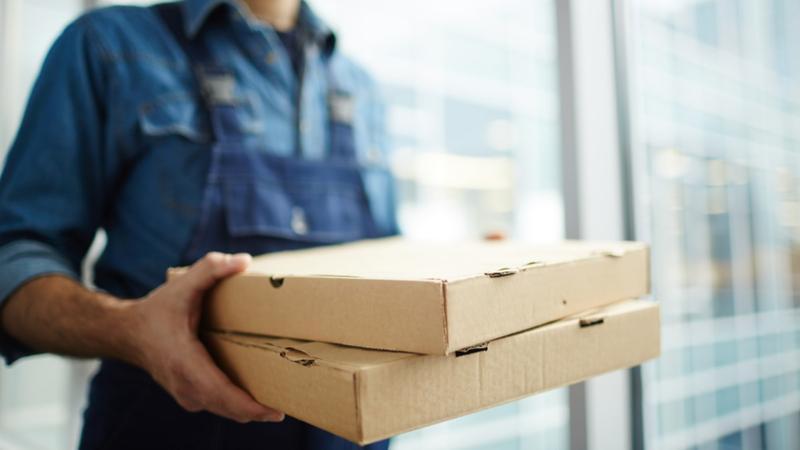The food delivery business has changed drastically in the last few years, thanks to app-based ordering. Companies such as SkipTheDishes, DoorDash, and Uber Eats, as well as chain and local restaurants leveraging the ubiquity of smartphones, making food delivery a more dynamic industry for drivers. It’s also affecting their car insurance.
Many people are getting into the business of being food couriers, but they may not be thinking about whether their auto insurance will cover them if they get into an accident while delivering food. They may even assume the company they’re delivering for will cover them with their insurance.
Knowing exactly what insurance coverage you have while delivering food is just as important getting the food to the right address.
Added Distractions, Large-Sized Consequences
If you’re delivering anything using your car, including food, there’s a good chance it’s part of what’s called the gig economy, and you’re likely not an employee; you’re an independent contractor. However, the risks on the road remain the same.
But in addition to the traffic and weather concerns that come with driving around all day dropping off deliveries, these flourishing app-based services mean drivers are often looking at their phones for guidance. This electronic distraction coupled with any others in the vehicle such as listening to music or chatting with a friend handsfree on their smartphone to make the time pass more quickly can lead to a driver taking their eyes off the road ahead.
Drivers making deliveries are more likely to become easily distracted while looking for their next delivery stop because they’re looking at an app for guidance in an unfamiliar neighbourhood or less than ideal light conditions in the evening hours. All these distractions are a recipe for a collision that lead to serious injury and even invite litigation if another person’s vehicle or property is involved. Regardless of the severity of the accident, hitting a pedestrian, cyclist, or another driver, or even a crash where you're the only one affected, there will be some impact on your insurance, and severe financial ramifications if you don't have coverage.
No Substitutions Allowed When It Comes to Insurance
Even if you already have personal auto insurance, you may or may not be covered if you're driving for food delivery services. It's different if you're carrying passengers for rideshare services such as Uber or Lyft — they have insurance that covers their drivers.
When you’re delivering fast food or take out with your vehicle, you’re using it for a commercial purpose, which means your insurance provider won’t honour a claim if you’re in a collision delivering food — it’s not designed for that. But just as every restaurant menu is different, so is the insurance coverage when driving for food delivery services.
Depending on the service you’re driving for, you do have coverage, but there may still be gaps.
For example, Uber Eats offers its drivers coverage through Economical Insurance in Alberta, Ontario, Quebec and Nova Scotia. In Ontario, its commercial insurance policy includes $2 million in third-party liability coverage — this will pay for damage to other people’s property and injuries. Uber Eats insurance also provides uninsured motorist protection, which pays for repairs to your vehicle if you’re in a collision that’s not your fault and the other driver is uninsured. But there are caveats. The third-party liability coverage fluctuates depending on whether you're delivering food at the time of the accident.
DoorDash, meanwhile, has less comprehensive insurance coverage than Uber Eats. It defines drivers as independent contractors who are obligated to have their own policy. While it does provide some limited third-party liability coverage for property damage or bodily injury, that only becomes available after you’ve exhausted your personal auto insurance limits. DoorDash would ultimately prefer that you deal directly with your own insurance provider.
For SkipTheDishes, having a “reliable vehicle, a valid driver’s licence, vehicle insurance, vehicle registration” is required if you want to apply to be a courier.
Even if there is some small amount of coverage provided by the delivery service you’re driving for, it’s best that you have your own vehicle insurance regardless. And if you do decide to deliver food, you need to inform your provider as the delivery service may not be required to compensate you for the repairs and associated costs that come with an auto accident.
Tastes Are Changing When It Comes to Available Coverage
Not having the right insurance or no insurance at all while delivering food could cost you a lot.
Suppose you were responsible for a collision and made a claim against your insurance without the proper coverage. In that case, it will prompt your provider to start an investigation that may lead to your claim being denied.
Ideally, you want to have commercial vehicle insurance if you're using your car for any business purposes, including food delivery, because your personal auto insurance policy doesn't apply to those circumstances. Commercial insurance costs you more, but it's a smaller price to pay than the financial penalties you'll face if you're in an accident while delivering food.
The good news is that some insurance providers are recognizing the need for personal insurance coverage for gig workers picking up delivery work. Some are adding it as a formal product without additional cost, while others want you to contact them to iron out the details.
Even then, it may have limitations depending on much time you spend on the road handing out grub. Besides your insurance costs, delivering food essentially makes you a business of one, so think about other expenses you might incur, including gas and wear and tear on your car, and you, the driver. They all eat away at your bottom line.
And if you decide you want to drive for a food delivery service, whether it’s full-time or part-time, double check your auto insurance coverage and research your options.
